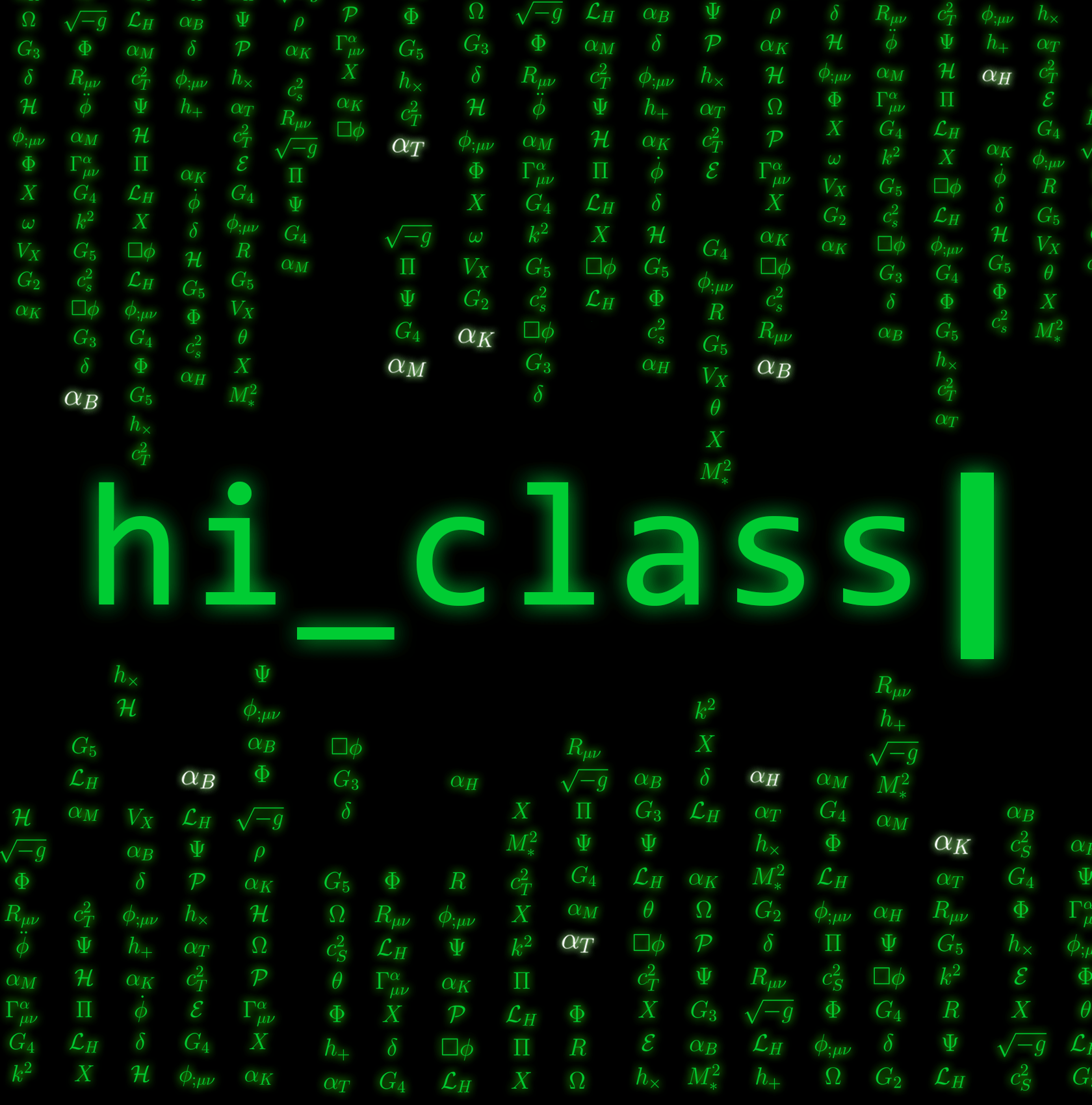-
Notifications
You must be signed in to change notification settings - Fork 30
Home

hi_class implements Horndeski's theory in the modern Cosmic Linear Anisotropy Solving System. It can be used to compute any linear observable in seconds, including cosmological distances, CMB, matter power and number count spectra. hi_class can be readily interfaced with MontePython, CosmoSIS and the Core Cosmology Library to test Gravity and Dark Energy models.
Horndeski is the most general scalar-tensor theory described by second-order equations of motion, and contains many well known models, including (but by no means limited to) covariant Galileons, Brans-Dicke, f(R), k-essence and quintesssence. Hi_CLASS relies on a powerful formulation of the Effective Field Theory for Dark Energy developed in (Bellini & Sawicki 2014).
The publicly available version (hi_class v1) is presented and described in:
-
hi_class: Horndeski in the Cosmic Linear Anisotropy Solving System
M. Zumalacarregui, E. Bellini, I. Sawicki, J. Lesgourgues, P. Ferreira JCAP 1708 (2017) 019
If you use hi_class in a project, please cite at least the above papers and the original CLASS paper (Blas et al. 2011).
hi_class has been used to obtain results in dozens of scientific publications (see full list).
hi_class has been validates against similar codes (Bellini et al. 2017). The results show sub-percent accuracy on cosmological observables across a broad class of models.
To learn how to use CLASS/hi_class please visit the resources section and the examples in this Wiki.
Hi_CLASS is currently being developed by
- Emilio Bellini (main developer)
- Pedro G. Ferreira
- Julien Lesgourgues
- Ignacy Sawicki (main developer)
- Miguel Zumalacarregui (main developer)
We are very grateful to Thomas Tram for his invaluable advice and Carlos Garcia-Garcia and Janina Renk for continuous work on hi_class. The bulk of the hi_class Wiki has been developed by Carlos Garcia-Garcia.
Home
Installation
Basic usage
classy: the python wrapper
Introducing new models
The code:
- Code 1: Philosophy and structure
- Code 2: Indexing
- Code 3: Errors
- Code 4: input.c
- Code 5: background.c
- Code 6: thermodynamics.c
- Code 7: perturbations.c
- Code 8: primordial.c
- Code 10: output.c
- Other modules
- classy: classy.pyx and classy.pxd
Examples: